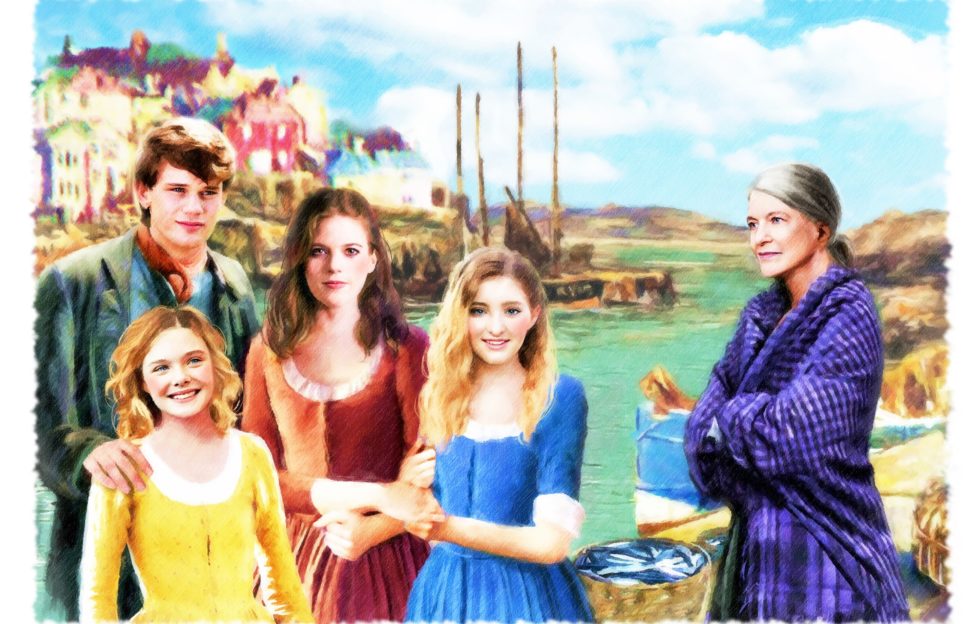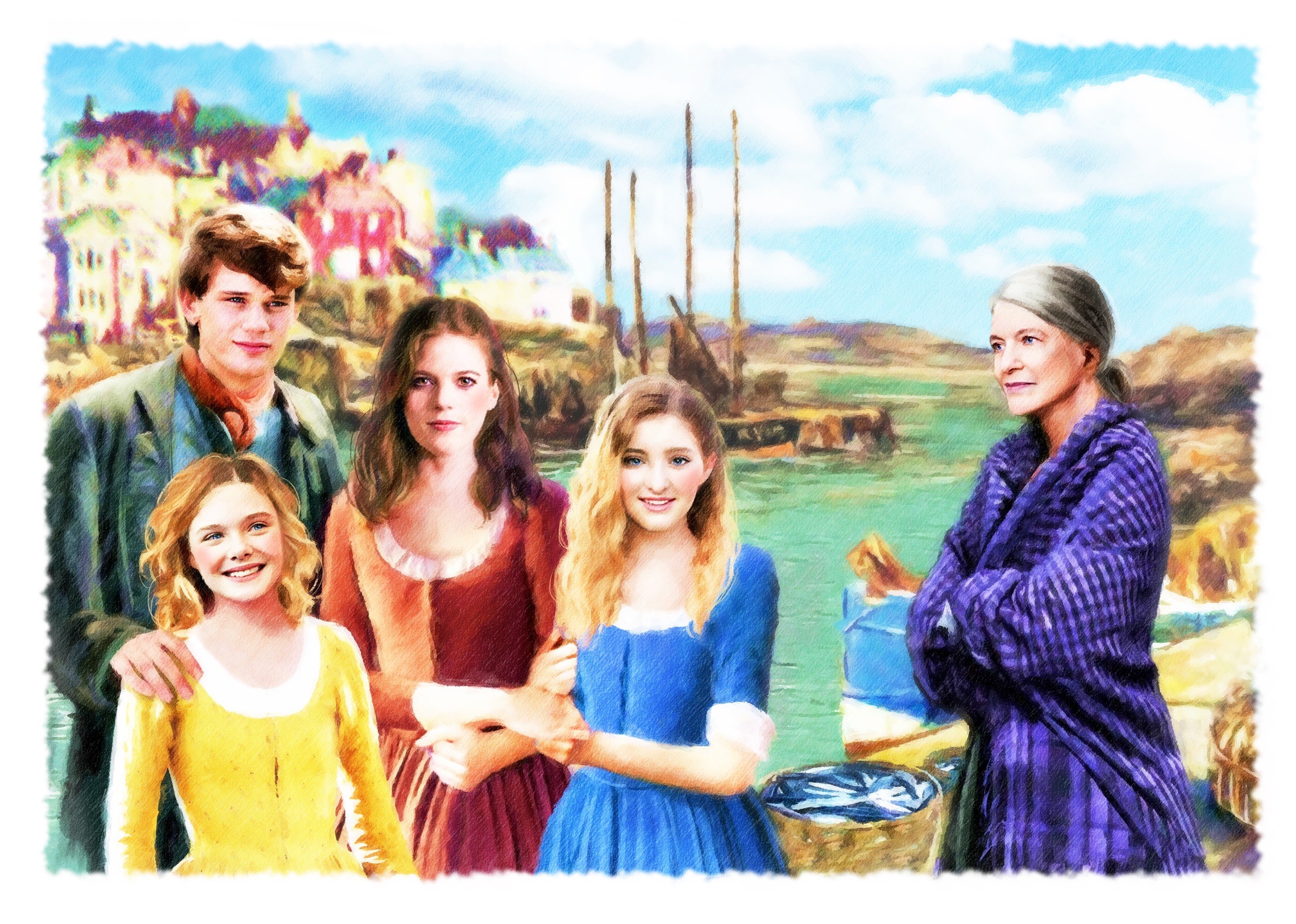Northern Lights – Episode 17

Northern Lights by Betty McInnes
« Previous Post- 1. Northern Lights – Episode 01
- 1. Northern Lights – Episode 17
Alec took off his cap. He, too, had information he was bursting to divulge.
“The smith says a Floating Light’s planned for next year, moored near the rock.”
“A Floating Light?” Lilias repeated. “I never heard o’ such a thing.”
Her grandson smiled.
“There’s never been one afore in Scottish waters but Robert Stevenson wants one and he’s in charge o’ building the lighthouse. Mr Cuthbert says the Floating Light’s to be named Pharos, after an ancient lighthouse that was once the wonder o’ the world.”
His eyes gleamed.
“They’ve purchased a captured Prussian vessel and will start work on her in Leith harbour. Her three masts will be fitted wi’ big copper lanterns containing ten lamps with silver-plated reflectors!”
“Ye’ll no’ miss her on a dark night, then,” his grandmother remarked.
“Aye, and besides, they’re to raise a wooden beacon-house on the rock next year, to house the artificers building the lighthouse. It’s all falling into place,” he ended enthusiastically.
If Alec hoped for a positive response from his sister it was not forthcoming. Maggie turned her back pointedly on her brother and stalked from the room.
* * * *
By next morning town and harbour were transformed, clad in a mantle of pristine white. Sound was muffled and even the gulls were mute.
From the press Maggie brought out four pairs of sea boots of varying size, lined warmly with sheepskin. Lilias had never seen the like.
“Papa made them for us every winter as we grew.” Maggie hesitated. “There’s a pair o’ Mama’s in the press. You’re welcome tae them if they fit,” she offered brusquely, refusing to meet her grandmother’s eye.
“Thank ye, Maggie,” Lilias said gently, knowing how much the grudging offer must have cost.
They got on well enough, helped by the peace pact, but there was wariness sometimes in the glances Maggie cast in her grandmother’s direction.
This bothered Lilias. The others were too young to remember much about their mother’s funeral and the accusations flung at their father afterwards, but Maggie remembered.
The siblings left for work that morning equipped for the freezing weather with warmly lined waterproof boots and thick hooded capes.
Alec led the group, making a pathway through the snow with Walter Cargill’s snowplough – a broom handle with a flat wide board screwed to it, the edge of the board neatly chamfered to cut through snow and leave an even path.
It was sad, Lilias mused as she washed up. She and her husband had shunned their son-in-law for no better reason than that their daughter had loved him enough to rebel and leave them.
Now, living in Walter Cargill’s house with his orphaned children, a clearer image was emerging.
She saw a dedicated man toiling by lamplight to fashion warm, lined boots for his wife and bairns, making sure they had capes and a clever device to clear snow from their path.
Lilias wondered if she had done Walter Cargill a grave injustice. There was no denying he was a devoted husband and father, giving time and thought to the well being of his loved ones.
Yet his sick wife had succumbed to inflammation of the lungs five years ago. Pneumonia, she’d heard the doctor call it, a complication everybody knew was brought on by chill and neglect.
Lilias closed her eyes tightly, remembering every detail of that bitter January day. Walter, motionless in the cold room while she screamed at him. Poor, wee Maggie crouched, trembling, in a corner.
He hadn’t denied the accusations, but strode to the door and opened it wide. Then he coldly ordered Lilias to leave his house and never return.
Walter Cargill had sent his accuser out of his life, never to see her grandchildren again. Surely that was evidence of a guilty conscience?
Yet she had a feeling that she had missed a vital clue to the tragedy, something that had failed to register with her on that fateful day.














